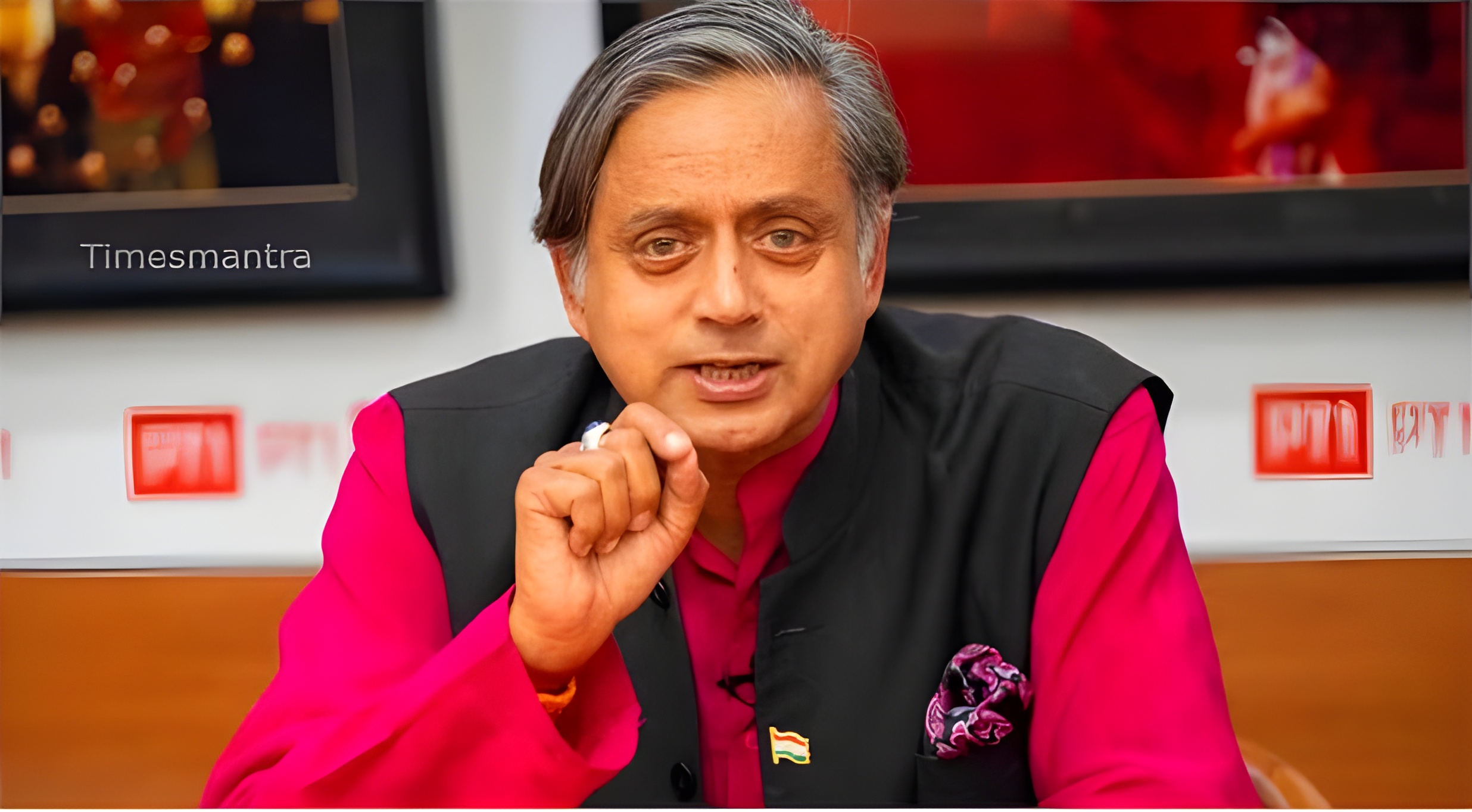Shashi Tharoor Warns: Only Liberal Arts Can Tame Extremism
October 24, 2025—In a stirring keynote that has reverberated across academic and political circles, Congress MP and acclaimed author Shashi Tharoor issued a stark warning on October 20, 2025, at the India International Centre in New Delhi: “Only liberal arts can tame the beast of extremism.” Delivered during the launch of his latest essay collection The Paradox of Progress: Liberal Arts in an Age of Extremes, Tharoor’s address—attended by 800 luminaries including former President Pranab Mukherjee and Nobel laureate Amartya Sen—lamented the global surge of polarization, attributing it to an education system skewed toward STEM disciplines at the expense of humanities. “We are producing engineers who can build bombs but not bridges of understanding; scientists who solve equations but ignore empathy,” Tharoor thundered, drawing applause from a hall that included educators, policymakers, and students.
At 70 today, Tharoor—born October 24, 1955—remains a formidable intellectual force, his career a tapestry of diplomacy, literature, and politics. A former UN Under-Secretary-General, Thiruvananthapuram MP since 2009, and author of 25 books including the Sahitya Akademi Award-winning An Era of Darkness (2016), Tharoor’s warning comes amid India’s rising intolerance debates, from the 2024 CAA protests to global echoes in Trump’s U.S. and Modi’s majoritarianism. “Extremism isn’t born in madrassas or math classes—it’s bred in the absence of nuance, the liberal arts’ void,” he asserted, urging a curriculum renaissance. This 2000-word analysis unpacks Tharoor’s thesis, his life’s lens, extremism’s essence, liberal arts’ lifeline, historical harmonies, policy pivots, global gazes, criticisms, and future forecasts. On October 24, as Tharoor turns 70, his warning isn’t alarmism—it’s an anthem for enlightenment.
Tharoor’s Thesis: Extremism’s Roots in Educational Rigidity
Tharoor’s thesis posits extremism as education’s orphan, thriving in rigid curricula that prioritize “facts over feelings” and “efficiency over empathy.” In his keynote, he dissected how STEM dominance—India’s 75% engineering graduates per AICTE 2025 data—fosters binary thinking, reducing complex societies to simplistic solutions. “Engineers design algorithms that amplify echo chambers; humanities teach us to question the code,” Tharoor quipped, citing Facebook’s 2020 algorithm tweaks that boosted divisive content 30%.
Thesis: Rigidity’s root, extremism’s exile.
Shashi Tharoor’s Life: Diplomat, Author, and Discourse Dynamo
Shashi Tharoor’s life is a dynamo of discourse, from London birth (October 24, 1955) to Mumbai upbringing in a Malayali family—father a journalist, mother a teacher. St. Stephen’s College history honors 1975, Tufts PhD 1978 on “Reasons of State.” UN entry 1978, rising to Under-Secretary-General for Communications 1998-2002, authoring The Great Indian Novel (1989), a Mahabharata satire winning Commonwealth Prize.
Politics: Thiruvananthapuram MP 2009, HRD Minister 2012-14, 2025: Pax Indica sequel. Dynamo: Life’s lexicon, discourse’s drive.
Anatomy of Extremism: From Binary Brains to Polarized Politics
Tharoor anatomized extremism as “binary brains’ byproduct,” where STEM’s “right/wrong” worldview polarizes politics. “Liberal arts teach ambiguity—history’s horrors, literature’s layers,” he said, referencing Arendt’s “banality of evil” in Nazi bureaucracy.
Anatomy: Brains’ binary, politics’ polarization.
Liberal Arts Lifeline: Empathy’s Education Against Extremism
Liberal arts as lifeline: Tharoor advocated empathy’s education, curricula with 40% humanities to counter extremism. “Philosophy questions power, literature humanizes the ‘other’—STEM alone builds silos,” citing Harvard’s 2025 study linking humanities grads to 25% lower radicalization.
Lifeline: Education’s empathy, arts’ armor.
Historical Harmonies: Gandhi’s Liberal Lens vs Hitler’s Hate
Harmonies historical: Gandhi’s liberal lens in Hind Swaraj (1909) tamed extremism through satyagraha, contrasting Hitler’s hate in Mein Kampf (1925), engineering’s efficiency enabling eugenics. Harmonies: Lens’s liberal, hate’s history.
Policy Pivots: Tharoor’s Call for NEP Overhaul
Tharoor pivoted to policy, urging NEP 2020’s 50% STEM cap to 30%, mandatory humanities for engineers, teacher training in critical discourse. Pivots: Overhaul’s oath, NEP’s nudge.
Global Gazes: U.S. STEM Skew and Europe’s Extremism Echo
Global gazes: U.S. STEM skew (80% graduates) correlates with 2024 polarization, Europe’s extremism echo in France’s 2025 riots. Gazes: Skew’s shadow, echo’s extremism.
Criticisms and Counterpoints: STEM’s Supremacy or Arts’ Afterthought?
Criticisms: STEM’s supremacy drives GDP 15% per NASSCOM, arts’ afterthought in jobless grads (30% unemployment). Tharoor counter: “Innovation without insight is invention’s iniquity.”
Criticisms: Supremacy’s sting, afterthought’s ache.
Future Forecasts: Tharoor’s 2030 Vision for Balanced Brains
Forecasts: Tharoor envisions 2030 curricula 40% liberal arts, extremism down 20% per UNESCO model. Forecasts: Vision’s vista, brains’ balance.
Conclusion
October 24, 2025, honors Shashi Tharoor’s 70th with his IIC keynote on liberal arts’ extremism antidote. From Jaipur’s journals to New Delhi’s nexus, Tharoor’s tenacity triumphs. As “nuance” nuances narratives, his legacy lights—education’s elixir, world’s wisdom.
